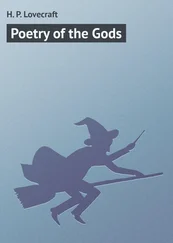‘Your men wouldn’t let me bring a notebook or tape recorder, so I’m not sure how effective this interview will be.’ Her voice wobbled on the last few words and she saw Rano smile.
‘I’ve got a tape recorder,’ he said. ‘Double cassette. I’ll give you your tape before you leave.’
‘Great. Then do you think we should start?’ Ginty was pleased with her voice; it had sounded polite but firm, with the kind of English firmness that could seem tentative to anyone who didn’t know the code. She hoped Rano was still English enough to appreciate it.
‘In a minute. First, tell me how the Harbingers are. Has the divorce come through yet?’
Ginty stared at him. What kind of psychopath would you have to be to make gossipy London conversation here?
‘I’ve no idea,’ she said, wishing he’d let her do her job and get out. ‘I hardly know John Harbinger, and I’ve never met his wife.’
‘But he’s your editor.’ Rano forgot to smile, and for a moment looked as dangerous as she knew he was.
Ginty’s skin prickled. She remembered Harbinger’s call yesterday, and her own shaky protests that she didn’t know enough to interview the most notorious of the local warlords.
‘Didn’t he tell you I’m freelance, that I’ve only just started writing for him?’
‘Yes.’ Rano relaxed and the smile oozed back around his lips. ‘But he says your work’s impressive for someone so inexperienced.’
Anywhere else and Ginty would have been flattered enough to ask questions.
‘Are you sure you don’t want anything to eat? You must be starving.’
This is surreal, she thought. There were villages in these mountains where the inhabitants had truly starved before Rano’s men had burned them out of their houses. But she realized she’d have to go along with him or challenge him into doing something even more unpleasant.
‘How do you know the Harbingers so well?’ she asked in much the same, party-going voice he’d used.
‘I was at university with him, which is why I offered him this interview in the first place. We were never close friends, but I occasionally used to run into him and Kate in London. I must say I was surprised when she married him. A man’s man, I’d have thought. Ah, good, they’ve got the tape going.’ He added something in his own language to the young men who were messing about with a large black-plastic tape recorder.
One answered, laughing. Rano laughed back and waved them away. One stayed, leaning against the wall behind the commander, and set about picking his teeth with a grubby fingernail.
Ginty heard the others moving to the far side of the long room. She didn’t let herself look away from Rano, but she could hear metal clattering and cloth tearing. She wondered what they could be doing until the sharp smell of chemicals and oil told her they must be stripping down the guns. Someone began to sing almost under his breath, a peculiar plaintive, wailing song full of nasal sounds. Someone else lit a cigarette. Ginty coughed.
‘Have a seat, Ms Schell, and we’ll get going.’ Rano sat at the food table and poured himself a glass of wine.
His shoulders looked very broad in the bulky camouflage jacket that hung open over a clean khaki T-shirt. The cleanliness bothered her, especially when he idly scratched his chest and she saw the blood under his nails again. He swallowed some wine and swung his legs up to lie on the corner of the table. The camouflage trousers were tucked into the top of gleaming black boots. He pressed the red button on the cassette recorder and nodded to her.
‘So,’ she said, and heard her voice high with nerves. She tried again: ‘So, tell me first how you, an Englishman, became involved in this war.’
‘My mother was born here. Most of her family still live here. She brought me up to speak the language, sing the songs.’ He jerked his smoothly shaven chin towards the singer in the corner. ‘I’ve never felt completely English, whatever my passport says.’
‘Did she come back with you?’
He looked at her as though she was mad. ‘Of course not. She’s in her seventies.’
‘Is she glad you’re here?’
‘She knows it’s necessary. Once this war started, I knew I couldn’t hang around, living in Pimlico and doing deals in London, while my people were dying only a few hours’ flight from the City airport. This is what matters, here and now, not making money.’
He paused, waiting for a comment, sympathy perhaps. Ginty was prepared to wait him out. He must have understood because he picked up the unlabelled wine bottle and held it towards her, raising his eyebrows.
‘Sure you don’t want some?’
‘I’m sure.’
‘OK. So, I left my job and came over here, planning to sort out some aid, or help them organize a proper international appeal for medical equipment, drugs, that sort of thing; but when I saw what was going on I knew I had to get involved. Have you any idea what they – we – have suffered over the centuries?’
Ginty nodded, but that wasn’t enough for him. He started to describe the sacking of villages, the burningsalive, the rapes, the killings, the desecration of holy places, deaths of babies, torture of fighting men, starvation, disease and exile. She listened, feeling battered by his remorseless stream of stories and remembering all the others she’d heard in the last two weeks.
‘You can see why it’s important that everyone in England knows the truth, can’t you?’ Rano was saying. She nodded. ‘International opinion has swung away from us again. Supplies of arms and money and everything else we need have almost dried up. We’ve got to mobilize all our support in the west.’
‘So this interview is part of a PR campaign,’ Ginty suggested, needing to show that she wasn’t a complete doormat. She wondered what his leaders thought about his private enterprise, this murderous miniature army that had topped every excess committed by anyone else.
Rano put down his glass, swung his feet to the floor and leaned across the table. His face was only a foot from hers. She moved back instinctively, remembering that being a doormat was safe as well as humiliating.
‘It’s rather more than that, as you very well know, Ms Schell.’ He waited for some acknowledgement. She despised herself for nodding again. ‘Good. All we’re doing is demanding justice. You have to understand that.’
‘Oh, I understand all right,’ Ginty said. He moved back, but that didn’t make her feel any easier. She forced herself to add: ‘But I’ll have to be fairly even-handed in what I write. If I pretend it’s only your people who’ve suffered, I become … the Sentinel becomes partisan and therefore automatically untrustworthy. I’ll have to include some balance. Do you understand that?’
Rano said something to the man behind him, who straightened up and stopped picking his teeth. Ginty couldn’t withdraw a single word. She just sat, watching them both, hoping she didn’t look too much like a rabbit in the headlights.
‘I know what you’re getting at, yes,’ Rano said at last, his eyes softening a little. Ginty tried to keep her own confident. ‘And it’s a reasonable point, but don’t overdo it. You have to make your readers see that we’ve had no alternative when we’ve hit back. I’ll need your agreement to that before you leave.’
She was very much aware of the other men in the room. Rano was waiting for her response, impatient, his hand clenched around his wineglass.
‘I’ll do my best.’
‘That’s not enough, Ginty.’
She hated the intimacy, and she wondered what Harbinger had said to make Rano feel he had the right to use her name like that. ‘It might help me write convincingly if you could make me understand why what you’re doing to them now – particularly the rapes – is any different from what they have done to you in the past. Aren’t you just fuelling the next bout of revenge?’
Читать дальше












